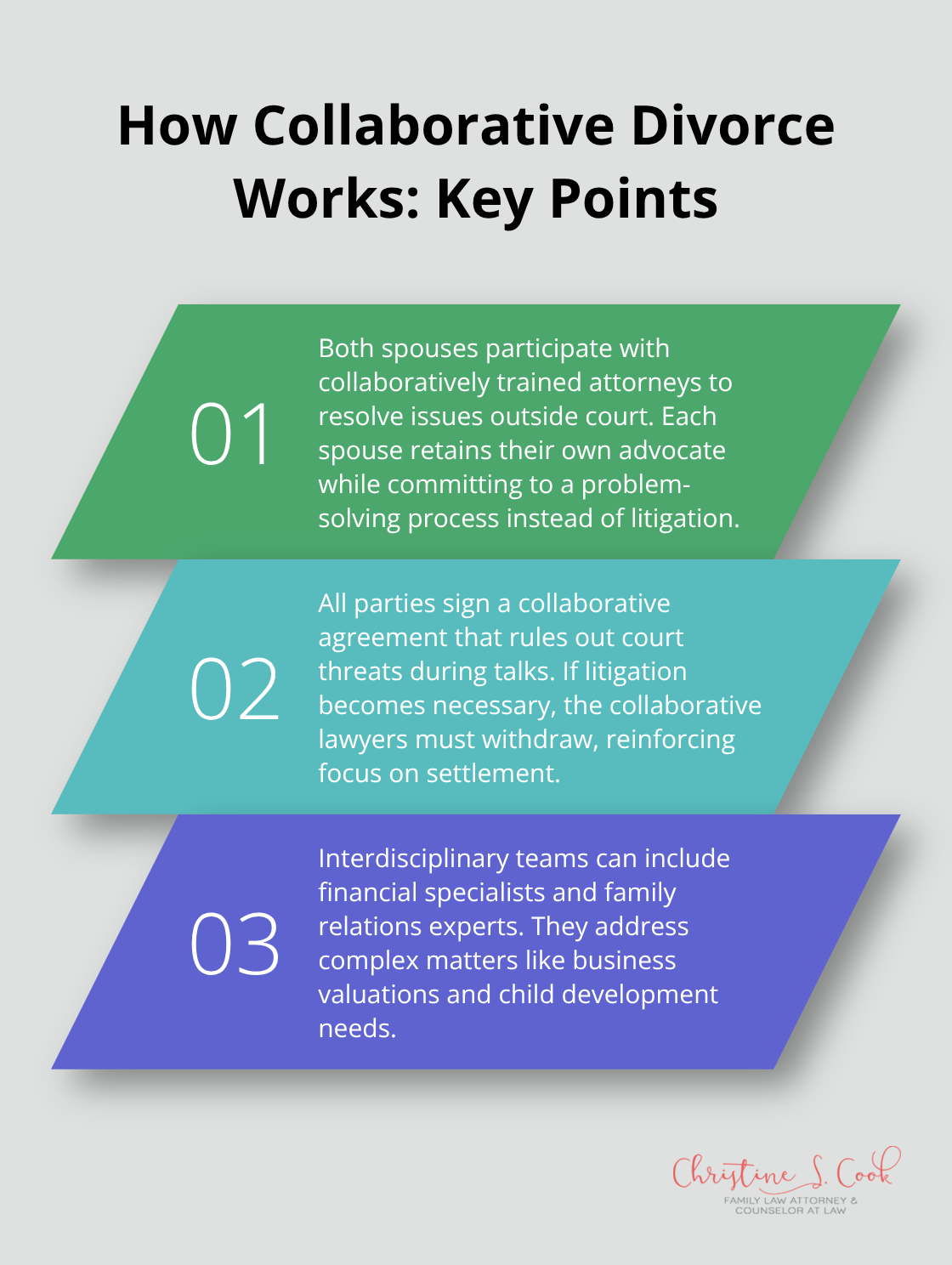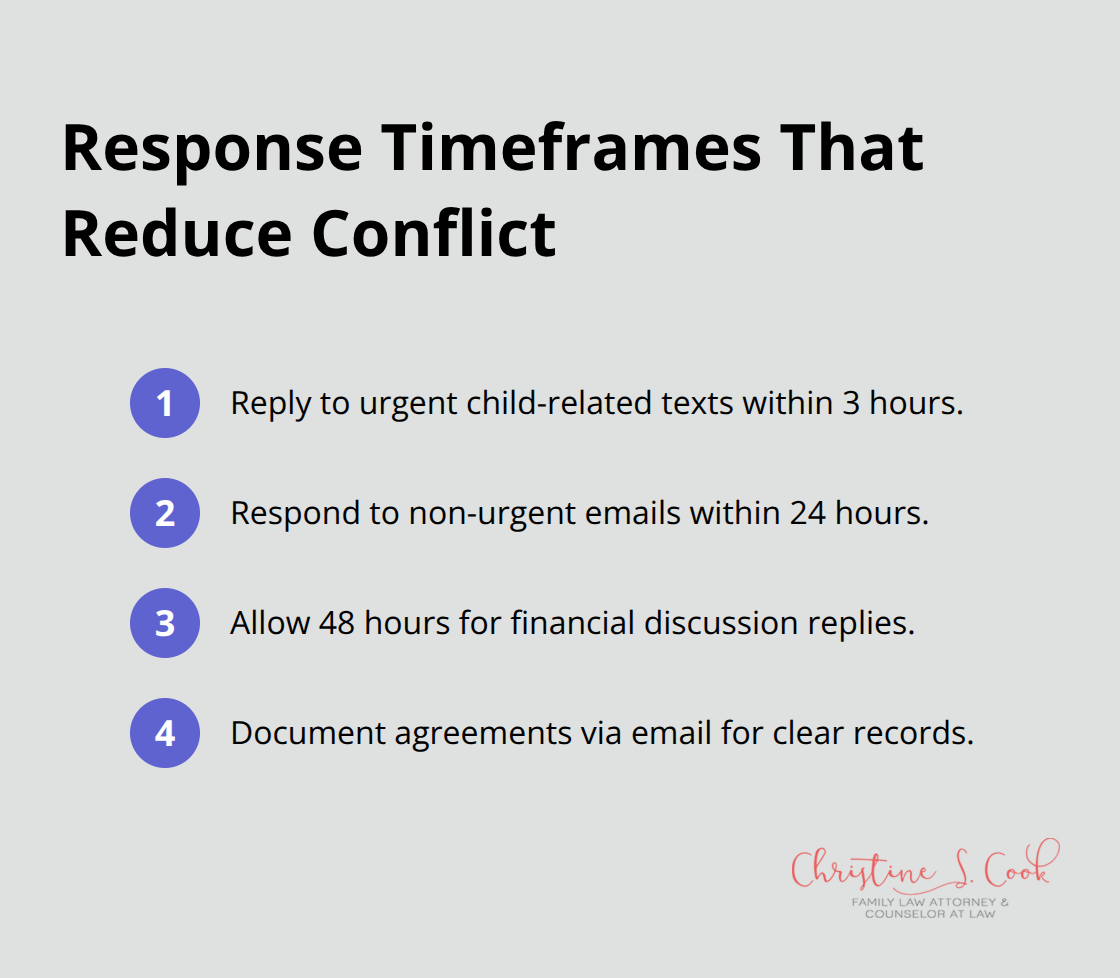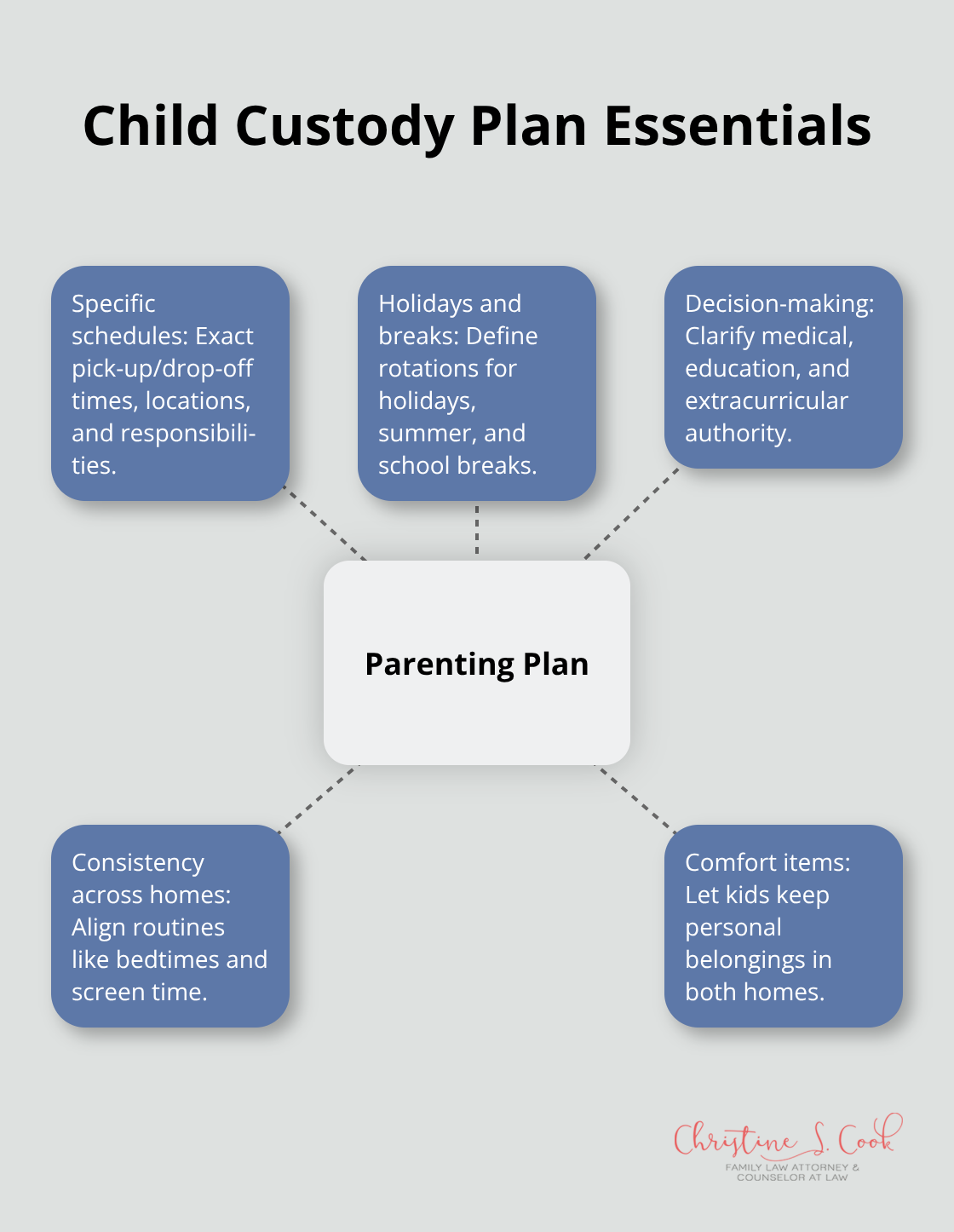Divorce doesn’t have to mean endless court battles and bitter disputes. Effective conflict resolution can transform a potentially destructive process into a collaborative effort that protects everyone involved.
We at Christine Sue Cook, LLC believe that couples can navigate separation while maintaining dignity and respect. The right approach makes all the difference for families seeking peaceful solutions.
Collaborative divorce brings both spouses together with specially trained attorneys to resolve all issues outside of court. Each party retains their own attorney, but everyone signs a collaborative agreement that commits all participants to find solutions without litigation threats. If the process fails and court becomes necessary, both attorneys must withdraw and new lawyers take over. This built-in safeguard keeps everyone focused on resolution rather than battle preparation.

The Ohio Collaborative Family Law Act of 2012 established certification requirements for attorneys, which demonstrates how seriously this approach has gained recognition. Teams often include financial specialists and family relations experts to address complex issues like business valuations or child development concerns.
While research varies across divorce mediation and litigation outcome studies, mediated divorces often provide benefits for couples seeking alternatives to traditional litigation. Couples report they feel more in control of outcomes, which leads to significantly less emotional distress throughout the process. The average mediation costs substantially less than courtroom battles, which makes it financially smart for most families.
A neutral mediator guides discussions on property division, child custody, and support without making decisions for you. This process allows creative solutions tailored to your family’s specific needs rather than cookie-cutter court orders that courts typically impose.
Collaborative approaches work best when both spouses can communicate respectfully about practical matters, even if emotions run high. These methods prove most effective for couples with children who need ongoing co-parenting relationships or complex financial situations that require detailed planning.
Avoid collaborative processes if domestic violence exists or one spouse refuses to disclose financial information honestly. The key indicator for success is both parties’ genuine commitment to reach fair agreements rather than win at all costs (regardless of the emotional toll).
Success in these alternative approaches depends heavily on how well you communicate with your spouse throughout the process.
The BIFF method transforms hostile exchanges into productive discussions. Brief messages prevent unnecessary complications. Informative content focuses on facts rather than feelings. Friendly tone maintains civility without being fake. Firm boundaries protect against manipulation attempts. Gottman’s research identifies key predictors of relationship failure, which makes responsive communication absolutely essential for amicable resolution.
Set specific response timeframes for different communication types. Urgent child-related texts require responses within three hours. Non-urgent emails get 24-hour response windows. Financial discussions need 48 hours for proper consideration. Document all agreements through email to prevent future misunderstandings and provide clear records of decisions made.
Transform your communication approach from personal to business-like transactions. The THINK framework guides every interaction: True, Helpful, Inspiring, Necessary, Kind. This method eliminates emotional reactions that derail productive conversations. Research shows that respectful communication helps minimize risks for negative outcomes in children’s well-being during separation.

Schedule regular negotiation sessions with specific agendas. Assign preparatory tasks between meetings. Take breaks when discussions become heated rather than push through emotional moments. This structured approach prevents arguments from escalation into litigation-worthy disputes.
Trained mediators provide neutral ground for difficult conversations. They facilitate discussions without making decisions for you. Family Relations Specialists help navigate child-related concerns while Financial Specialists handle complex asset division. These professionals prevent decisions based on inaccurate online information that often leads to costly mistakes.
Consider divorce coaches for emotional support throughout the process. They teach conflict resolution skills that benefit relationships with ex-partners, children, and future partners. Professional intervention often resolves disputes faster than couples who attempt negotiations alone (which saves both time and money).
Define mutual objectives with your ex-spouse to maintain focus on the best outcomes, especially when children are involved. Couples who embrace shared goals can benefit from reduced stress and quicker resolutions. Prioritize areas of agreement to build rapport and momentum toward resolution of challenging issues.
Transparency about interests and concerns reduces misunderstandings and fosters cooperative problem-solving. Avoid letting minor disagreements escalate into major conflicts (focus on big issues and compromise where necessary). This approach creates the foundation needed for successful asset division and custody arrangements.
Start asset division by creating comprehensive inventories of all marital property, including bank accounts, retirement funds, real estate, vehicles, and business interests. Both spouses must disclose every financial detail honestly – hidden assets destroy collaborative processes faster than any other factor. Schedule separate meetings with financial specialists who can value complex assets like businesses, stock options, or professional practices accurately. These professionals prevent costly mistakes that couples make when they guess property values or rely on outdated appraisals.
Focus on net worth rather than individual items when you negotiate splits. One spouse might keep the house while the other takes equivalent retirement account values. Consider tax implications for every asset transfer – a traditional IRA transfer differs significantly from a Roth IRA transfer in terms of future tax burden. Document all agreements in writing immediately to prevent memory disputes later.
Create parenting schedules that specify exact pickup and drop-off times, locations, and responsibilities for each parent. Vague arrangements like alternating weekends create confusion and conflict. Include holiday rotations, summer vacation splits, and school break arrangements in your initial agreement. Address decision-making authority for medical care, education choices, and extracurricular activities upfront rather than leave these decisions for future disputes.

Research has documented that parental divorce is associated with increased risk for child and adolescent adjustment problems. Build consistency between households when you agree on bedtimes, screen time limits, and discipline approaches. Allow children to keep personal items at both homes to ease transitions and provide comfort during visits (this simple step reduces anxiety significantly).
Calculate spousal support with your state’s guidelines as a starting point, then adjust for specific circumstances like career sacrifices made during marriage or significant income disparities. Consider the length of marriage, each spouse’s earning capacity, and contributions to the other’s career advancement. Temporary support during divorce proceedings often differs from permanent support arrangements.
Structure support payments to encourage financial independence rather than create permanent dependency. Include automatic termination dates, modification triggers for significant income changes, and specific conditions like remarriage or cohabitation that end support obligations. These clear terms prevent future court battles over support modifications and can be formalized through consent orders (which saves both time and money).
Amicable conflict resolution during divorce creates lasting benefits that extend far beyond the immediate process. Couples who choose collaborative approaches report higher satisfaction rates and maintain better post-divorce relationships, particularly when children are involved. These methods reduce emotional trauma for everyone while significantly lowering legal costs compared to traditional litigation.
The financial advantages compound over time. Mediated divorces typically cost a fraction of courtroom battles, and the cooperative relationships established during the process prevent expensive future modifications. Children benefit most from parents who model respectful problem-solving rather than adversarial combat (which teaches valuable life skills).
Professional legal guidance becomes essential when complex assets, business interests, or challenging custody situations arise. We at Christine Sue Cook, LLC provide compassionate support through collaborative law techniques while offering aggressive court representation when necessary. The skills you develop during amicable divorce proceedings serve you well in future co-parenting relationships and personal growth.
